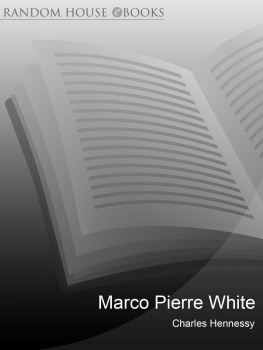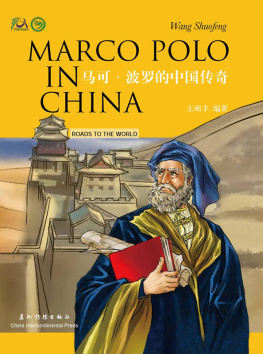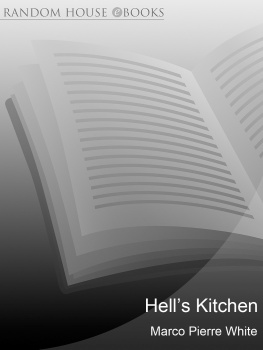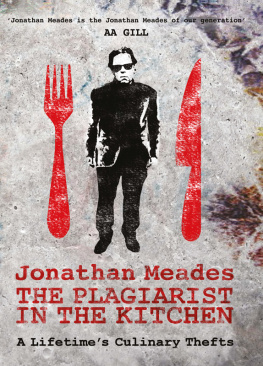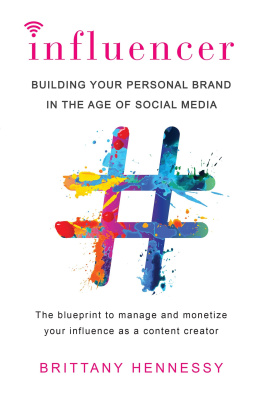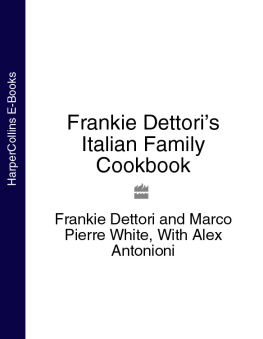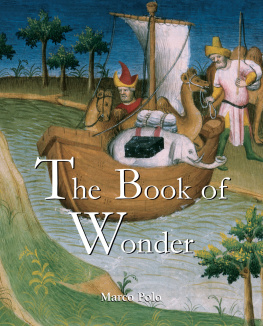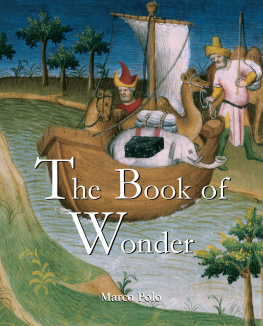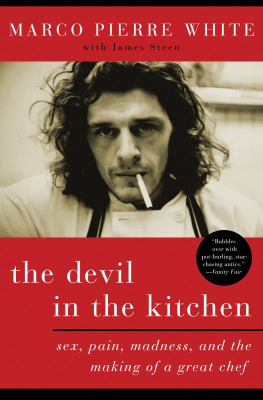afterword
hot from the press and the kitchen
In a calculated coup de thtre, which cynics saw as a cunning preemptive strike but which others, like the sagacious Egon Ronay, had long foretold, Marco Pierre White informed the nations press that he was abandoning his mtier of master chef, quitting the stove, putting aside for ever the tall toque (which he had never worn) of his calling, and handing back his hard-earned Michelin stars.
Tempestuous three-star chef gets out of the kitchen, headlined The Times, over a half page. Marco Pierre White to put cooking on the back burner, cried the London Evening Standard. More cautiously, and over two pages, the Daily Telegraph qualified its headline, Not the retiring type, with a subhead that claimed that the former chefs powerful ambition now reaches far beyond the kitchen.
Thus 21 years in the kitchen came to a close. My love for restaurants will never die, Marco said. I have achieved the ultimate of three Michelin stars, but it is much more exciting chasing the stars than defending them. I want to spend more time with my family and focus my working energy on becoming the best restaurateur in the country. And not, it would seem, only in this country: there were teasing mentions, perhaps wisely taken with a pinch of gros sel as coming from one who has never travelled further south or west than Bournemouth, of forays into Paris and New York.
The cynics who crowed about pre-emption had their reasons, but were themselves neatly pre-empted. I dont want Michelin saying standards have fallen and taking away my stars, Marco said, as he, in effect, handed in his stripes. But there was another, deeper reason for his decision, not conveyed to the press. Im the same age now as my mother was when she died, and that made me think. Id achieved everything I set out to achieve. Id lived a complete life over those 38 years. It was time to start again, to change direction.
appendix
marco master chef
With astonishing prescience and impressive self-awareness, while cooking at his first restaurant, Harveys, the young Marco Pierre White declared: Im just at the beginning of my career: youre not going to see the true Marco until Im 35 or 40. At the age of 38 and, as a Michelin-accoladed three-star chef, at the peak of his powers and the summit of his calling he abruptly announced his retirement from the kitchen. He had, he felt, nothing more to prove.
What had he learned and for he is the acknowledged mentor of a whole generation of talented tyros in the trade what did he teach during those brief, hectic years? Somewhat discouragingly, his mantra has always been, Theres nothing really new in cooking you cant re-invent the wheel. True, no doubt, but you can, as Marco recognizes, borrow, embellish, improve on the classics.
For example, the famous crme brle with slivers of Granny Smith (recipe on page 206) was as far as we know the inspiration of the great chef Guy Savoy in his Paris restaurant, from where it was translated by a young trainee in the kitchen, one Gordon Ramsay, to his restaurant Aubergine in London, where it was spotted by his former master, the ever-observant and duly appreciative Marco Pierre White. Nobody ever invented a new dish: youd have to invent new ingredients first.
He had learned about such practices in his first employment, at the remarkable Box Tree in Ilkley, where he acquired the foundation of his knowledge from the restaurants two English owners, who were entirely without training in the classical French cuisine. Their method was to visit all the two- and three-star restaurants of France, to eat, taste, remember and then, back in Yorkshire, to recreate and refine. If people would only spend more time tasting what they are cooking instead of worrying about germs, the quality of their cooking would soar.
It was this knowledge, enriched by his experience with the French masters practising their art in London, that he took to his own first restaurant. Its enlightening to look back at some of my earlier menus at Harveys; there are some very simple combinations there, classics, which I obviously relied on while I was perfecting my craft.
This simplicity was something Marco continued to pursue in subsequent locations, in the teeth, as it were, of opposition from his own clientele. Even as he became the youngest chef ever, anywhere (including France), to achieve three stars, at The Restaurant in the Hyde Park Hotel, he was regretting that in France, because of the different food ethic or culture, the great chefs can get away with offering a simple roast chicken, grilled sea bream with a red wine sauce or salmon with a sorrel sauce. That cutting through to the essentials is something Id like to do as well, but nine out of ten of my customers wouldnt understand it.
Classical did not mean only haute cuisine. While Marco was happily being profligate with truffles and caviar at The Restaurant, he was also, while maintaining the highest standards, bringing his art down to a more affordable level at The Canteen. Dishes perfected there are to be found, often prepared by the same chefs, at his subsequent establishments, like the Criterion and the Titanic. The Mirabelle strikes the middle note: luxury at acceptable prices. In any of them, the simple classics a chunk of succulent cod, mashed potatoes, lemon tart are likely to feature on the menu, cooked to the same consistently high standard.
Marco, the master chef become restaurateur, continues to believe that the foundation of all good cooking lies in the classical marriages (of which he is fond of citing fish and chips). But you must use your brain to rethink them, make them relevant, give them a contemporary beauty. While acknowledging that no domestic cook can ever achieve what we can, because they lack the hands, the time, the facilities, the finance, he believes that any of his recipes, because of their intrinsic simplicity, can be successfully interpreted in the home enjoyably.
A final word: Be generous. Be extravagant. Without generosity there is no love, and without love there is no understanding.
P UBLISHER S NOTE
For readers who would like to pursue further their interest in the recipes of Marco Pierre White, the following books are available: White Heat (1990), Wild Food from Land and Sea (1994), Canteen Cuisine (1995), and The Mirabelle Cookbook (1999).
Harveys
Salad of marinated sea scallop
Serves 2
2 large scallops
1 tablespoon olive oil
6 coriander seeds, crushed
salt, black pepper, sea salt
6 pieces salad de mche (on the stalk but trimmed)
3 tablespoons olive oil and 1 tablespoon white wine vinegar mixed for vinaigrette
6 baby spinach leaves
8 small centre leaves of oakleaf lettuce
4 thin slices raw beetroot
4 long thin slices carrot
2 chicory leaves, diced very finely
4 coriander leaves, finely julienned
chervil, to garnish
- Thinly slice the scallops and place neatly on the inner edge of two large plates. Coat them sparingly with olive oil. Sprinkle on the crushed coriander seeds and a little freshly ground black pepper. Place in the fridge for 10 minutes.
- Mix the leaves, season and add a little vinaigrette, and arrange neatly in the centre of the plates to form a salad 7.5 cm (3 in) high. Season the vegetables and chicory, add a little vinaigrette, and carefully place on the salad. Finish with a piece of chervil and the julienned coriander.
- Season the scallops with a little sea salt.
Fresh fillet of sea bass velout with caviar

